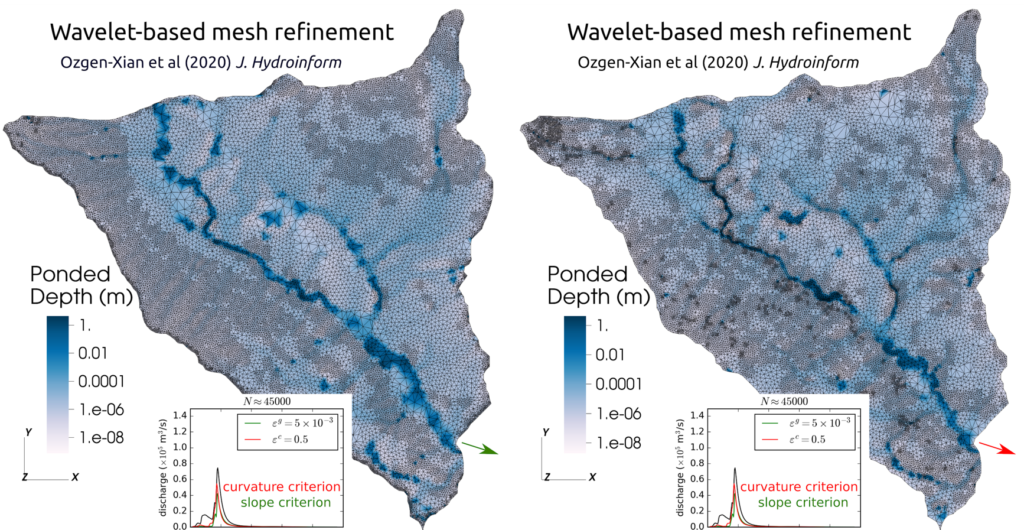Multiresolution meshes are generated using a single error-threshold criterion, e.g. error in the approximation of topographic slope, thereby reducing the number of free parameters needed by other approaches. In the Lower Triangle Region of the East River CO watershed, two of such criteria are chosen: topographic slope and topographic curvature. Simulation results show that using curvature as refinement criteria is preferable in mountainous catchments.
The approach to generate multiresolution meshes is general in that it can be used with different criteria to refine a given mesh. Thus, it will make it possible to generate meshes to obtain accurate results for a broad range of processes.

Ponding water depth computed on the multiresolution meshes generated by a slope-based refinement criterion (left); and a curvature-based refinement criterion (right).
Summary
Multiresolution mesh generation usually utilizes a number of free parameters, which are tuned in a rather empirical manner. This study uses wavelet analysis—a mathematical method for signal analysis—to reduce the number of free parameters to exactly one: the acceptable error threshold. The authors apply the wavelet analysis on bed slope and the bed curvature to generate multiresolution meshes for high-intensity overland flow simulations. Case studies ranging from laboratory scale experiments to a sub-catchment of the East River Watershed, CO were carried out to compare results obtained on these meshes. For the latter case, computational results show that meshes generated by the curvature-based criterion give a more accurate prediction of stream discharge, which implies that in mountainous watersheds these flow processes are controlled by the curvature of the terrain. The wavelet approach is general enough to be used for different criteria to drive mesh refinement in addition to the ones demonstrated in the manuscript.
Citation
Özgen-Xian, I., G. Kesserwani, D. Caviedes-Voullième, S. Molins, Z. Xu, D. Dwivedi, J. D. Moulton, and C. I. Steefel (2020), Wavelet-based local mesh refinement for rainfall–runoff simulations, Journal of Hydroinformatics, DOI: 10.2166/hydro.2020.198.
